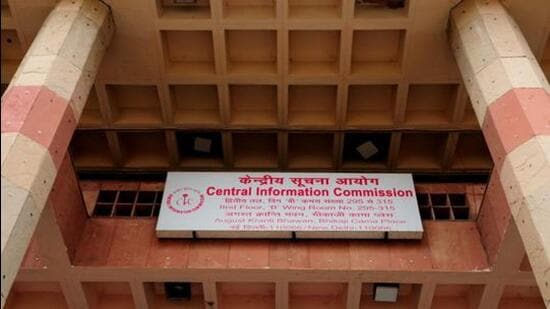
The Central Information Commission, the supreme agency responsible for enforcing India’s transparency laws, has the crucial responsibility of deciding whether or not information should be disclosed. However, it appears that the commission has abandoned its main responsibility in situations with more public significance.
Central Information Commission (CIC)
- Public information officers (PIOs) are employed by each of the central departments and ministries under the direction of the chief information commissioner (CIC). The Indian President is directly responsible for CICs.
- There is a Chief Information Commissioner and a maximum of ten Information Commissioners who make up the Commission. Aside from the Chief Information Commissioner, the Commission now has six information commissioners.
- They are chosen by the President based on the advice of a committee that includes the PM as Chairperson, the Leader of the Opposition in the Lok Sabha, and a Union Cabinet Minister that the PM has nominated.
- Office tenure: The CIC/IC shall serve in that capacity for the Central Government’s specified period of time or until they reach the age of 65, whichever comes first. Reappointment is not possible for them.
Powers:
- Any person who makes an information request under RTI, 2005 is required to submit a complaint to the Commission, which is then required to investigate it.
- If there are good reasons, the Commission may order an inquiry into any matter (suo-moto power).
- The Commission has the same summoning, requesting of documents, etc., powers as a civil court when conducting an investigation.
RTI Procedure and the role of CIC
- The Right to Information Act gives citizens the option to submit requests to any public entity, and they are promised a response from the public information officer of that public body within 30 days.
- A citizen may file an appeal at the departmental level and then a second and final appeal with the Information Commission in the event of a non-response or disagreement with the response.
- The State Information Commission in each State hears second appeals involving State agencies. The Central Information Commission is in charge here.
Changes in RTI amendment 2019
- Prior to the 2019 modification to the RTI Act, information commissioners (ICs) appointed to the CIC had statuses equivalent to those of a Supreme Court justice and the Chief Election Commissioner. They had terms of service and a fixed period of five years.
- Following the 2019 revisions, the Centre granted itself the authority to alter and decide upon these parameters whenever it pleased, undermining the commission’s and its personnel’s independence.
Concerns raised over the changed approach of CIC
- Decreasing accountability: According to records, there hasn’t been a single order for disclosure in cases involving public interest. A new body of law that the current group of information commissioners jointly established has added more barriers to a citizen’s desire for accountability.
- Systematic disregard for the confidentiality obligation: The Commission has adopted a new procedure for transferring its authority to consider cases to the Ministry in front of it. The Ministries typically reaffirm their prior position of non-disclosure, most frequently on the flimsy pretext of national interest.
- Refusing to do its duty: After these public bodies issue new orders, which are typically just a restatement of their previous position against disclosure, the CIC declines to consider any new challenges to those orders, failing to fulfil its obligation to decide the cases.
- Ignoring the idea of natural justice: A fundamental tenet of natural justice is that no one should be allowed to decide a case for which they are personally responsible. However, the commission now permits, or rather wants, the Ministry itself to act as the judge in their own case and determine if a disclosure is required. This is despite the Ministry being accused of breaking the RTI Act.
- Brand-new items like pending lawsuits and stay orders: It is extremely rare for a case to be kept waiting for a final ruling or a stay order, and the RTI Act makes no allowances for either.
- Officers are unafraid of any legal penalties: Bureaucrats reject RTIs with joy, knowing full well that they are protected by the Information Commissioners and are not subject to the harsh penalties outlined in Section 20 of the RTI Act.
@the-end
The transparency regime in India is obscured by gloom. Citizens must exert significant pressure on the government to take action and designate trustworthy commissioners. Lawyers must assist willing citizens in bringing cases to court and pursuing justice.
Source—https://cic.gov.in/#:~:text=The%20Central%20Information%20Commission%20has,over%20all%20Central%20Public%20Authorities.
